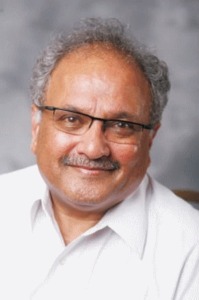
Porbunderwalla Kersi
A strong and competent audit committee is part of the overall sound corporate governance, risk management and compliance (GRC) system in a company. If all the GRC processes are in place, they will ensure the quality of the financial information provided by the company as well as the risk management systems of the company. Furthermore, it contributes to minimising financial, operational and compliance risks within the company as a whole.
Over the last couple of years, Audit Committees (AC) has found their place in the general GRC structures of global companies. Experience within audit committees is building up and areas for improvements are also materialising.
The old school AC often provides support to the external auditors through their monitoring responsibilities. A strong cooperation between the two parties is beneficial not only for the auditor and the audit committee, but also for the company as a whole. This allows the valuable information accumulated by the audit committee regarding the risks for the company as a whole to be exchanged with the external auditor. However the AC has much more to offer.
The AC focus has since implementation shifted away from the basic desire for companies to implement suitable governance controls, and toward the larger scenario of maximizing business value by improving operational decision making and data for strategic planning.
Improved audit committees
The conference will focus on improvements concerning the clarification of the competences and responsibilities of the audit committee and reporting to and from the audit committee. These improvements would be beneficial to companies, having in mind that the main purpose of audit committees is to ensure the quality of financial reporting, overall internal control and risk management.
EU directives are underway to harmonise the functions of the audit committees thru regulation. Strengthening the role of the audit committee is part of this initiative that include a greater involvement in the appointment of the auditor.
However, since audit committees are just one part of the overall GRC system of a company, the need for flexibility regarding the setup of AC remains in order to provide for the independent company law systems and corporate governance models that will continue to exist within the European Union.
Source: www.vrl-financial-news.com/accounting/the-accountant/issues/ta-2012/ta-6103/fee-launches-audit-committee-c.aspx
Over the last couple of years, Audit Committees (AC) has found their place in the general GRC structures of global companies. Experience within audit committees is building up and areas for improvements are also materialising.
The old school AC often provides support to the external auditors through their monitoring responsibilities. A strong cooperation between the two parties is beneficial not only for the auditor and the audit committee, but also for the company as a whole. This allows the valuable information accumulated by the audit committee regarding the risks for the company as a whole to be exchanged with the external auditor. However the AC has much more to offer.
The AC focus has since implementation shifted away from the basic desire for companies to implement suitable governance controls, and toward the larger scenario of maximizing business value by improving operational decision making and data for strategic planning.
Improved audit committees
The conference will focus on improvements concerning the clarification of the competences and responsibilities of the audit committee and reporting to and from the audit committee. These improvements would be beneficial to companies, having in mind that the main purpose of audit committees is to ensure the quality of financial reporting, overall internal control and risk management.
EU directives are underway to harmonise the functions of the audit committees thru regulation. Strengthening the role of the audit committee is part of this initiative that include a greater involvement in the appointment of the auditor.
However, since audit committees are just one part of the overall GRC system of a company, the need for flexibility regarding the setup of AC remains in order to provide for the independent company law systems and corporate governance models that will continue to exist within the European Union.
Source: www.vrl-financial-news.com/accounting/the-accountant/issues/ta-2012/ta-6103/fee-launches-audit-committee-c.aspx
Kersi Porbunderwalla is the founder and CEO of
Riskability®, Copenhagen Compliance® and Copenhagen Charter®.
After his early retirement from ExxonMobil, Kersi
has been involved in several Global Good Governance, Risk Management and
Compliance (GRC) Projects for multinationals like IBM, Shell, BP, Volvo and
others.
He continues to implement GRC journeys for a
variety of clients to develop custom tailored GRC folder that includes
methodologies, roadmaps, and specific solutions to assignments, training and
certification.
Kersi conducts workshops, seminars and conferences
that focus on developing and implementing GRC applications & frameworks into
operational environments.
He is a consultant, instructor, researcher,
commentator and practitioner on 4 continents.
Autres articles
-
Hong Kong : bientôt des premiers ETF Bitcoin ?
-
TMS Network (TMSN) Powers Up As Cryptocurrency Domain Appears Unstoppable. What Does This Mean For Dogecoin (DOGE) and Solana (SOL)?
-
The Growing Popularity of Crypto Payments: Could TMS Network (TMSN), Alchemy Pay (ACH), and Ripple (XRP) Lead The Way Despite The Whales?
-
DigiFT DEX Raises $10.5M in Pre-Series A Funding Led by Shanda Group
-
Giddy Wallet Announces First-Ever Autogas Feature for Polygon














